|
|

|
Newsletter
No. 66
|
|
|
| WELCOME |
|
Here we are, summer just gone, bushfires and snake season still ever present. It has been a very long time between these newsletters – but life and work just seem to get in the way.
We are look forwarding to 2023 at Animal Ark. David, Jenny, Sinai, Kurt and Shannon all wish you the very best for a fortuitous year ahead.
|
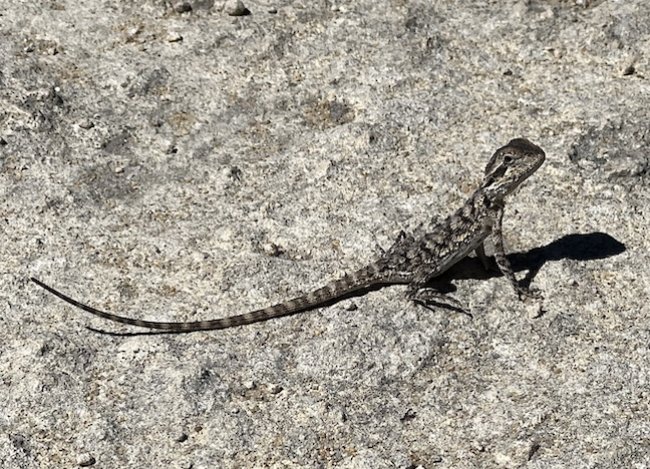
|
|
|
| NEW PRODUCT – HUGS WITHOUT HARM |
|
A small leap for mankind no doubt, but I'm very proud to have had designed and manufactured a new silicone sleeve for snake tongs. SNAKE HUGGERS ™ as they are called should make catching snakes using tongs easier, more effective and gentler on the snakes. A win win as they say. More at https://shop.animalark.com.au/
As of now all tongs purchased from us will be automatically fitted with SNAKE HUGGERS ™ at no extra cost. But they are also easily retrofitted to most snake tong brands currently on the market.
1 pair $25 inc postage
5 pairs $100 inc postage
|
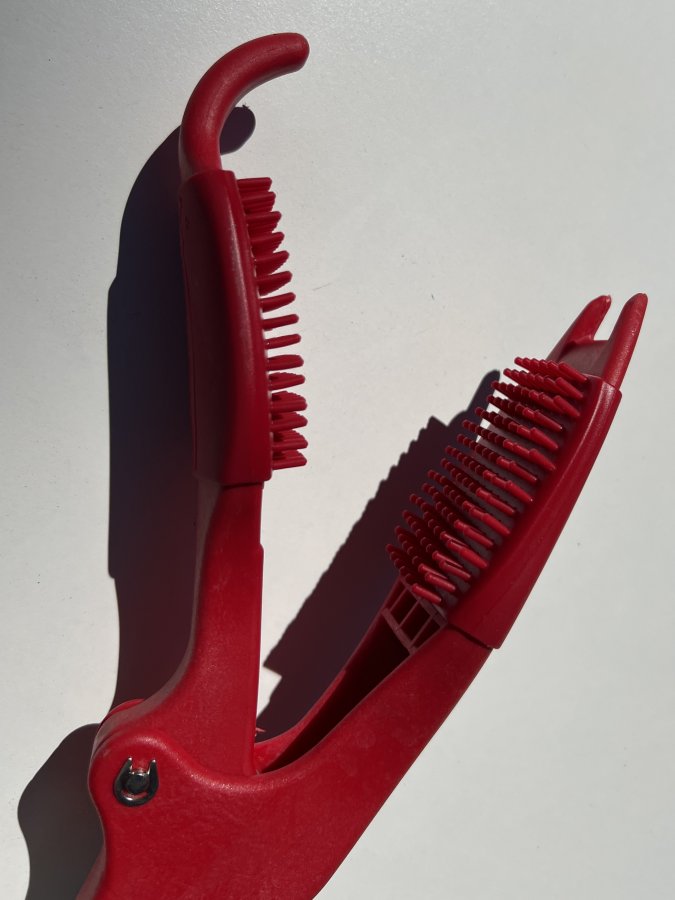
|
|
|
| SNAKE AVOIDANCE TRAINING |
|
It is rare, but does happen, that for some dogs the e-collars we use for our snake avoidance training just don't work. On occasion they don't fit, or the dogs learn that e-collars mean 'trouble', or the 'corrections' just don't have any effect at all on more stubborn dogs or those canines with a higher prey drive. Also, some people don't approve of e-collars at all.
So, we have now introduced as a back up tool 'sound aversion'. The blast of sound being another effective aversion method added to our toolbox for trickier dogs and also available for those owners not keen on the use of electronic collars.
|

|
|
|
| MORE ON AVERSION TRAINING |
|
There are still lots of reptiles around – particularly as this time of year is when baby snakes are hatching and being born. Our training continues throughout the autumn and into winter, so do hop on the website to book an appointment www.snakeavoidance.com.au
Bookings can also be made for the spring season ahead, as we are slowly but steadily adding new dates and locations for the latter part of 2023. We do get extremely busy come the spring, so good to book early to avoid disappointment.
|
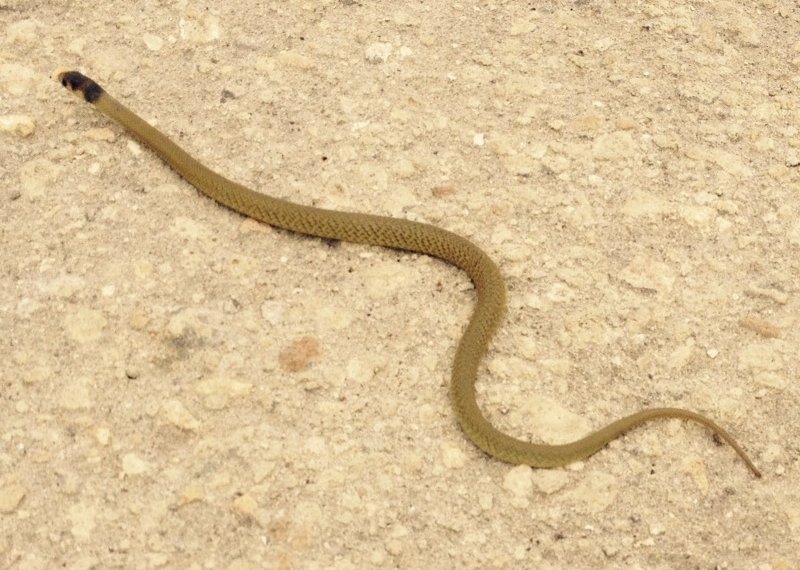
|
|
|
| SNAKE AVOIDANCE WEATHER WARNINGS |
|
Whilst the Christmas and summer season may be behind us now, it is worth noting that occasionally due to extreme heat, or other hazardous weather, we do need to cancel / rearrange scheduled training dates. We always let clients know by text or phone if we have decided to pull the plug on a given day or location.
When it is too hot (34°C) it's not good for dogs and their paws especially. It's also not good for our staff or human customers. Or for the snakes. We always try rescheduling asap.
|
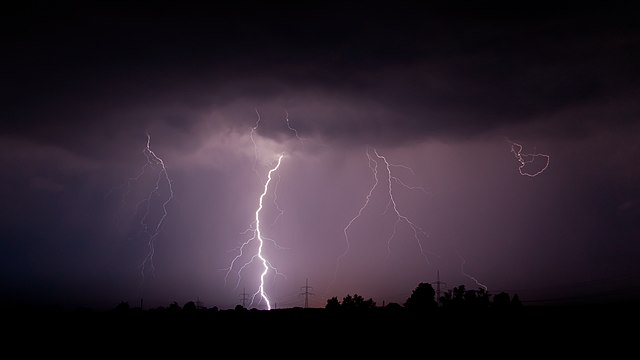
|
|
|
| EVOLVING DEFENCE FOR TREE FROGS |
|
Tree frogs are amongst the most beautiful amphibians, and many are a brilliant green to help them blend in with a forest environment. In Europe one usually green frog species has gone dark to protect it from an unusual hazard it faces in its environment.
Around Chernobyl the radiation from the nuclear disaster in 1986 poses a threat to anything living nearby. So dangerous is the situation scientists can only study within the exclusion zone for 15 days in a year.
The Eastern Tree Frogs (Hyla orientalis) however live there all year round. Outside the radiated protected zone, they are still mostly green but within it many are now black. It appears that evolution is at work as darker frogs survive longer and as time goes by the darkest frogs live long enough to breed and over a few generations the population of frogs living within the radiated area are turning black.
The melanin protects the small amphibians from radiation and the more melanin you produce the better as a frog are your chances of survival in a radiated habitat. |
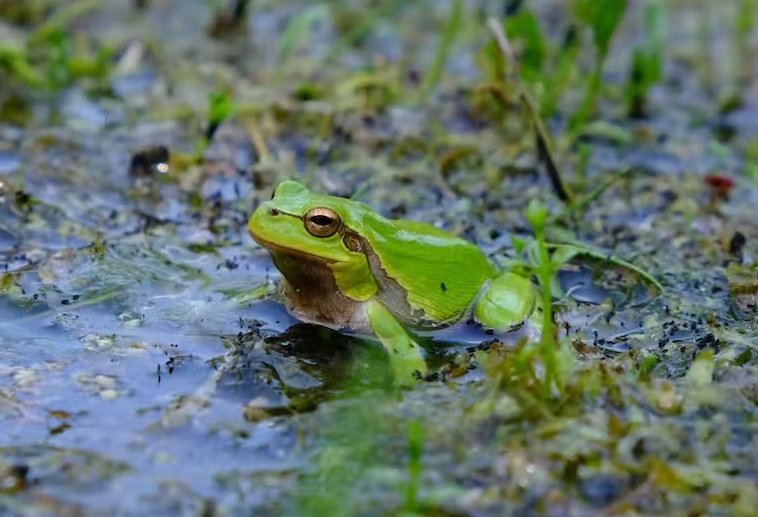

|
|
|
| IN FOCUS: GLASS FROG Hyalinobatrachium fleishmanni |
|
Being invisible to avoid predation would be an amazing adaptation. If they can't see you, they can't eat you. The well named Glass Frogs (Hyalinobatrachium fleishmanni) of Southern Mexico to Ecuador are very hard to see, and scientists have recently discovered the technique used by the frogs when resting to achieve near invisibility.
So see-through are these frogs that you can see their heartbeat through the skin. It would appear, that whilst their plasma is still flowing around the body these crafty amphibians can pool and concentrate the red blood cells within the liver and render themselves 61% transparent. |
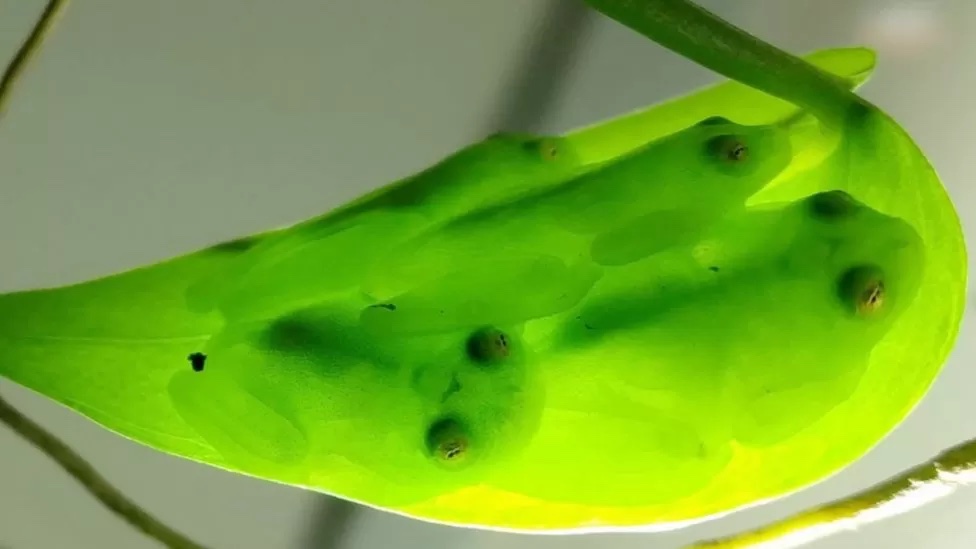
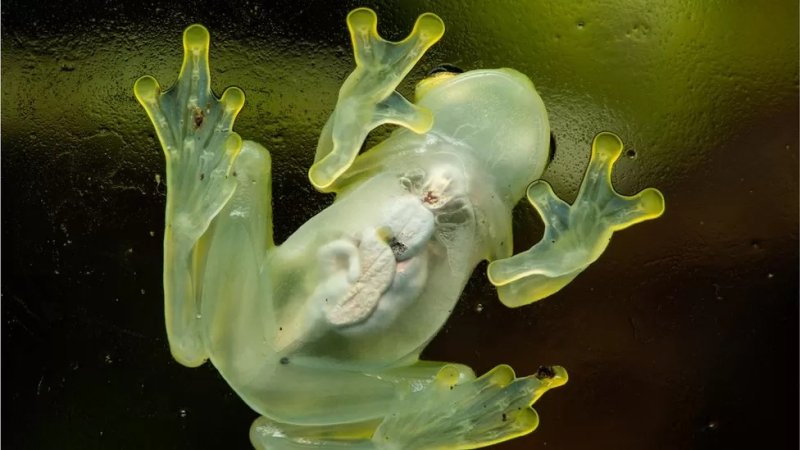
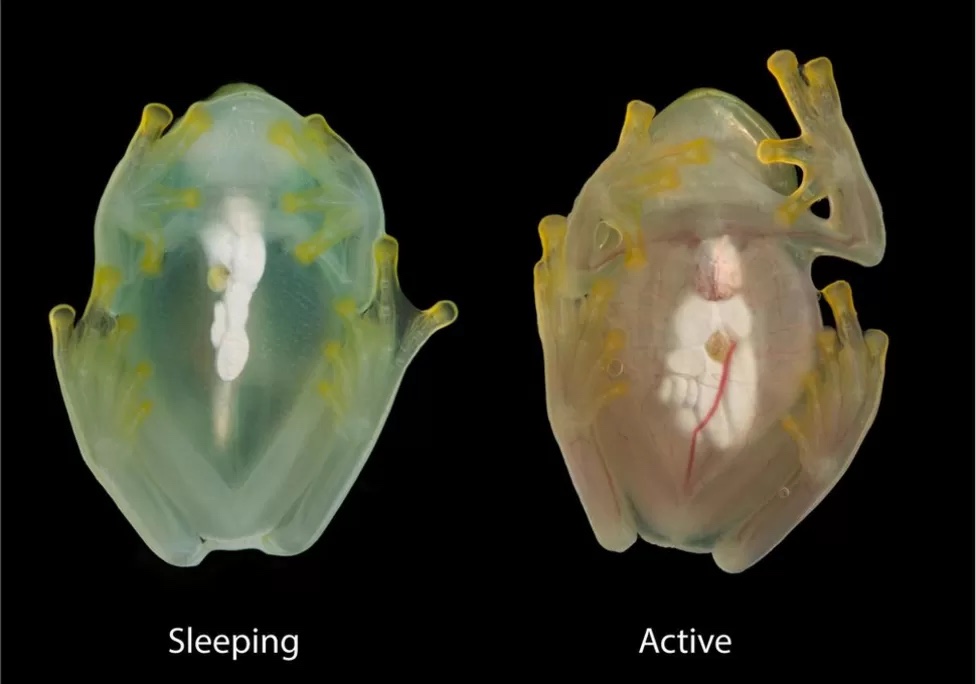
|
|
|
|
|












